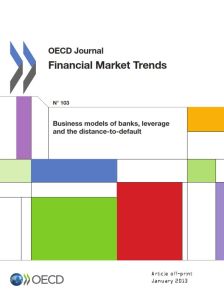Join getAbstract to access the summary!

Join getAbstract to access the summary!
Adrian Blundell-Wignall and Caroline Roulet
Business Models of Banks, Leverage and the Distance-to-Default
OECD, 2012
What's inside?
Can a bank’s business model and leverage predict its demise?
Recommendation
Economists Adrian Blundell-Wignall and Caroline Roulet are among the first to conduct research on the business and financial variables that indicate how near a bank might be to defaulting. Their study covers 94 internationally active financial institutions from 2004 to 2011, including the world’s biggest commercial and investment banks during the 2008 crisis. Their econometric modeling provides hard data to support what many observers intuitively grasped but could not prove: Highly leveraged financial institutions active in derivatives and reliant on market funding are inherently more risky than less-leveraged deposit-funded banks with less exposure to derivatives. getAbstract suggests their scholarly study to financial policy makers, regulators and bankers.
Summary
About the Authors
Adrian Blundell-Wignall is the special adviser to the Organisation for Economic Co-operation and Development (OECD) secretary general on financial markets, and Caroline Roulet is an OECD economist.

















Comment on this summary